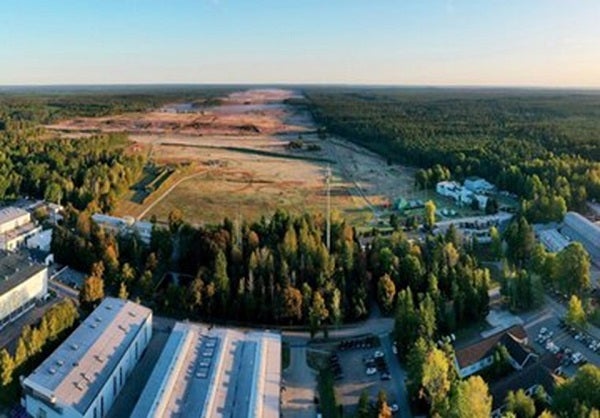
Germany’s prime arms manufacturer Rheinmetall has taken another step to increase its capacity to produce ammunition in Europe.
Rheinmetall announced on 12 February, 2024, that a new factory will be established at its Unterlüß site in Lower Saxony, which will ensure Germany’s “self-reliance in ammunition production,” the company asserted, adding: “Previous dependency on export permits issued by other countries will thus be eliminated, giving Germany full sovereignty in this national security-relevant domain.”
A bold pledge during a time of ammunition shortage in Europe, especially if the figures around Ukraine’s rate of consumption are anything to go by.
Rheinmetall’s new factory will produce artillery ammunition, explosives and rocket artillery components.
The German Chancellor Olaf Scholtz, his Defence Minister Boris Pistorius and the Danish Prime Minister Mette Frederiksen joined Rheinmetall’s executive board chairman Armin Papperger for the official ground-breaking ceremony of ‘Werk Niedersachsen’, the group’s new ammunition factory.

Wirk Niedersachsen
Wirk Niedersachsen is expected to eventually manufacture 20,000 artillery shells a year, along with up to 1,900 tinnes of RDX explosive and, optionally, other components for producing ammunition charges.
How well do you really know your competitors?
Access the most comprehensive Company Profiles on the market, powered by GlobalData. Save hours of research. Gain competitive edge.

Thank you!
Your download email will arrive shortly
Not ready to buy yet? Download a free sample
We are confident about the unique quality of our Company Profiles. However, we want you to make the most beneficial decision for your business, so we offer a free sample that you can download by submitting the below form
By GlobalDataIn addition, production may extend to rocket engines and warheads. This will be necessary for the planned German rocket artillery project – enshrined in the memorandum of understanding between Rheinmetall and the US defence prime Lockheed Martin signed in April 2023.
What is more, this company-financed project represents investment volume in the €300m ($323.25m) range.
“Rheinmetall is therefore shouldering the entire cost of constructing the factory, with no government involvement,” the company said in a statement. “The move reflects our sense of responsibility and resolve to contribute materially to the ability of our country and our Nato partners to defend itself.”
Germany positions itself at the centre of Europe’s ammunition supply chain
Ultimately, Rheinmetall hopes to create “a complete value-added chain for artillery ammunition in Unterlüß,” enabling it to offer the ‘full shot’ from a single source, including the shell, fuse, explosive charge and propelling charge.
However, within German industry, Rheinmetall is not alone in its aspirations to make Germany the centre of Europe for ammunition supply. The pan-European missile defence supplier MBDA has also made a considerable mark in bolstering the Bunderwehr.
MBDA Germany’s missile subsidiary and propulsion manufacturer, Bayern-Chemie, returned to Raytheon’s industrial supplier base for the Patriot missile defence system in 2023.
Now, the provider is ramping up production once again for the next-generation PAC-2 variant: the Patriot Guidance Enhanced Missile (GEM-T) interceptors.
Since July 2023, Nato has agreed industry deals worth $10bn for ammunition: “including $ 5.5bn for 1,000 more Patriot air defence missiles just last month. A deal that will build more production capacity in Europe for this vital capability,” said the Secretary General Jens Stoltenberg.



